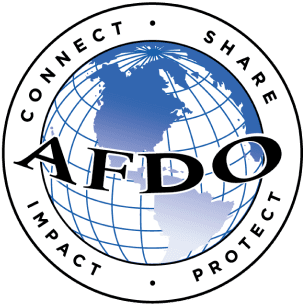FDA Announces Two New Cooperative Agreement Programs to Enhance Human and Animal Food Laboratory Testing Capabilities and Capacity
The U.S. Food and Drug Administration (FDA) is pleased to announce the award of two new cooperative agreement programs (CAPs) that are intended to enhance the capacity and capabilities of state human and animal food testing laboratories in support of building an integrated food safety system, the Laboratory Flexible Funding Model (LFFM) and the Building an Integrated Laboratory System to Advance the Safety of Human and Animal Food Cooperative Agreements.
The FDA Food Safety Modernization Act (FSMA) outlines a new approach to food safety that is risk-informed and preventive in focus. Recognizing that sample testing can play a greater role in helping the agency and our regulatory partners prevent contaminated food products from reaching consumers, better understand risks, and assess the value of strategies to control those risks, FDA has begun to rethink how the agency deploys its resources and ways to work more effectively and collaboratively with our state and local laboratory partners.
State and local human and animal food testing laboratories are tasked with conducting investigational, surveillance, and emergency response testing in collaboration with state and local regulatory programs and play a critical role in the identification, containment, and prevention of foodborne illnesses. FDA is committed to assisting these laboratories in building laboratory capacity and capability, maintaining and expanding the scope of ISO/IEC 17025 laboratory accreditation, and supporting the groundbreaking work achieved through the GenomeTrakr network. Effective leveraging of resources and harmonization of efforts will require extensive collaboration with relevant initiatives, including those of federal partners, national associations/organizations, and state and local partners.
The LFFM Cooperative Agreements will strengthen and improve FDA’s efforts to prevent foodborne illnesses and minimize foodborne exposures by helping to build a nationally integrated laboratory science system. Participating laboratories will be equipped with additional resources that can be employed to build and increase sample throughput capacity and capability within their states. The laboratory analyses they perform will drive a risk-based and prevention-focused food safety system for tracking and trending, early identification of emerging issues, and evaluation for future sampling initiatives and areas of focus.
The FDA awarded LFFM Cooperative Agreements to fifty-five (55) state and university-based human and animal food testing laboratories. Each award was for up to $1.5 million annually for five years. A total of $31.7 million was awarded to state and university-based laboratories in Fiscal Year 2020.
FDA also awarded the Building an Integrated Laboratory System to Advance the Safety of Human and Animal Food Cooperative Agreement to the Association of Public Health Laboratories (APHL). The award was for up to $500,000 annually for three years.
APHL will assist state and local LFFM-participating and unfunded food testing laboratories with building laboratory capacity and capability in the testing of human and animal food samples. Under the cooperative agreement, APHL will conduct research on national testing capability and capacity; provide trainings, workshops, and educational materials to support laboratories obtaining and expanding their scope of ISO 17025 laboratory accreditation; host LFFM and GenomeTrakr annual meetings; develop best practice manuals and guidances for sample collection, analytical methodology, and compliance standards; and support information sharing initiatives between FDA and partnering laboratories.
In response to the award of these important CAPs, Paul Norris, DVM, Director of the Office of Regulatory Science in FDA’s Office of Regulatory Affairs said, “There is absolutely no doubt in my mind that the successful development and execution of the LFFM can accurately be described as a milestone or inflection point in a “New Era” of the Mutual Reliance effort with FDA’s state partners to create a national integrated laboratory network in support of public safety. The LFFM was several years in the making and the list of contributors is long. However, Andrew Carnegie’s quote describes the effort best, “Teamwork is the ability to work together toward a common vision. The ability to direct individual accomplishments toward organizational objectives. It is the fuel that allows common people to attain uncommon results.”
Shari Shea, APHL’s Director of Food Safety further added, “APHL is honored to work with FDA through the Integrated Lab CAP to support and enhance the capabilities of state human and animal food (HAF) testing laboratories, including those funded through the new LFFM. Through workforce development efforts, direct technical assistance, and network building, we will shape the national Integrated Food Safety System, the foundation of which is the defensible data created in HAF laboratories.”
For questions or comments regarding this new cooperative agreement program, please email the Office of Partnerships in FDA’s Office of Regulatory Affairs at OP.Feedback@fda.hhs.gov.
For addition information on other funding opportunities:
This message is being broadcast by the Division of Communications in FDA’s Office of Regulatory Affairs (ORA).
Thank you,
FDA/ORA
Office of Communications and Project Management
Division of CommunicationsMailbox: DivComm-ORA@fda.hhs.gov
